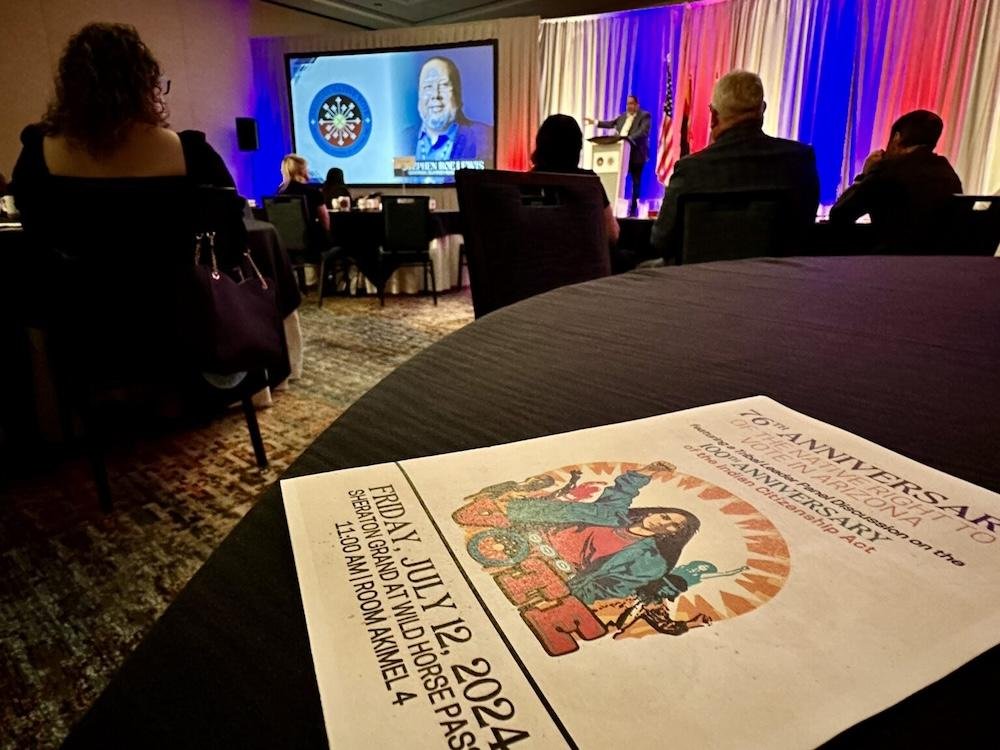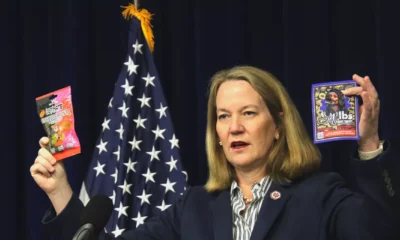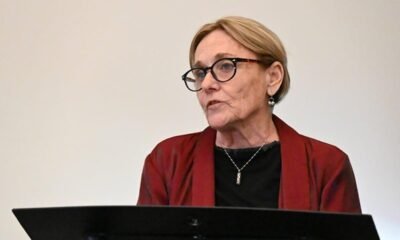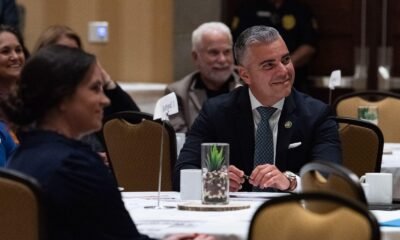arizona
Indigenous Leaders Triumphantly Celebrate 76 Years of Native Voting Rights in Arizona: “Our Voice is Our Power”

Gila River Indian Community Gov. Stephen Roe Lewis is urging Arizona’s Indigenous people to remember and honor those who fought for their right to vote, as they exercise that right this year. “We’re not celebrating the right to vote,” Lewis stated. “We are acknowledging and commemorating these important dates in history for our tribes and our tribal members.”
Lewis emphasized the significance of commemorations rather than celebrations, noting the hardships tribes had to overcome to vote on their homelands. “A celebration would ring hollow,” he said, underscoring the immense struggle and sacrifices Indigenous people endured to gain recognition as citizens of their own lands.
Indigenous people were not recognized as citizens of the United States until 1924, and even then, it took decades to access the rights associated with citizenship, including the right to vote. Arizona granted Indigenous people the right to vote in 1948.
To mark the 76th anniversary of Native voting rights in Arizona and the 100th anniversary of the Indian Citizenship Act of 1924, the Inter Tribal Council of Arizona and Arizona Native Vote hosted an event on July 12 at the Sheraton Grand at Wild Horse Pass in Chandler. Maria Dadgar, executive director of the Inter Tribal Council of Arizona, remarked, “Here in the state of Arizona, American Indian people have fought a very long and hard political battle to win the right to vote.”
“We must remember that our voice is our power,” Dadgar added, stressing the importance of using that power to uphold democratic principles. The Inter Tribal Council of Arizona, one of the nation’s oldest and largest inter-tribal organizations, comprises 21 tribal nations in the state.
“Our mission is to provide our member tribes with a united voice and the means for united action on matters that affect tribal nations in Arizona, collectively or individually,” Dadgar explained. Encouraging tribal communities to vote and protect Native voting rights remains a core focus.
Arizona boasts one of the largest Native voting populations in the U.S., with over 305,000 Indigenous people of voting age, constituting 6% of the state’s total population. Indigenous Arizonans finally secured the right to vote on July 15, 1948, following the Arizona Supreme Court’s decision to overturn a 1924 ban.
The journey began in November 1924, when Gila River Indian Community citizens Peter Porter and Rudolf Johnson filed a suit seeking voting rights. Although that attempt failed, the movement continued for 24 years until Frank Harrison and Harry Austin of the Fort McDowell Yavapai tribe filed a lawsuit in 1948, ultimately resulting in the landmark ruling.
Justice Levi Udall wrote in the opinion that established Indigenous people’s right to vote, “In a democracy, suffrage is the most basic civil right since its exercise is the chief means whereby other rights may be safeguarded.” Udall further noted, “To deny the right to vote, where one is legally entitled to do so, is to do violence to the principles of freedom and equality.”
Lewis emphasized the importance of remembering Porter, Johnson, Harrison, and Austin, using their stories to educate on the struggles and strides made toward Native voting rights. He added that these rights are still under threat today, with Arizona being a focal point for voter suppression laws that disproportionately impact Native voters.
Lewis shared the story of Matthew Juan, a Gila River Indian Community member who was the first Native American and Arizonan to die in World War I. Despite his service, Juan was not recognized as a U.S. citizen at his death. His service and the subsequent recognition of Indigenous veterans highlight ongoing battles for recognition and rights.
“Unfortunately, that fight still goes on today,” Lewis said, highlighting recent state and federal legislative efforts that could restrict Native voting rights. He assured that the Gila River Indian Community remains committed to opposing such efforts.
The importance of voting was further underscored in a panel discussion featuring tribal leaders, who highlighted the need to educate younger generations on the power of their vote. “Everything starts in your home,” said Salt River Pima-Maricopa Indian Community President Martin Harvier, urging families to instill the significance of voting in their children.
Harvier explained the difficulty tribal communities face in endorsing specific candidates, given their need to maintain diplomatic relations with whoever wins office. “For years, tribal communities have been on the menus and we need to be at the table,” he stated, calling for better education on candidates’ support for tribal issues.


















